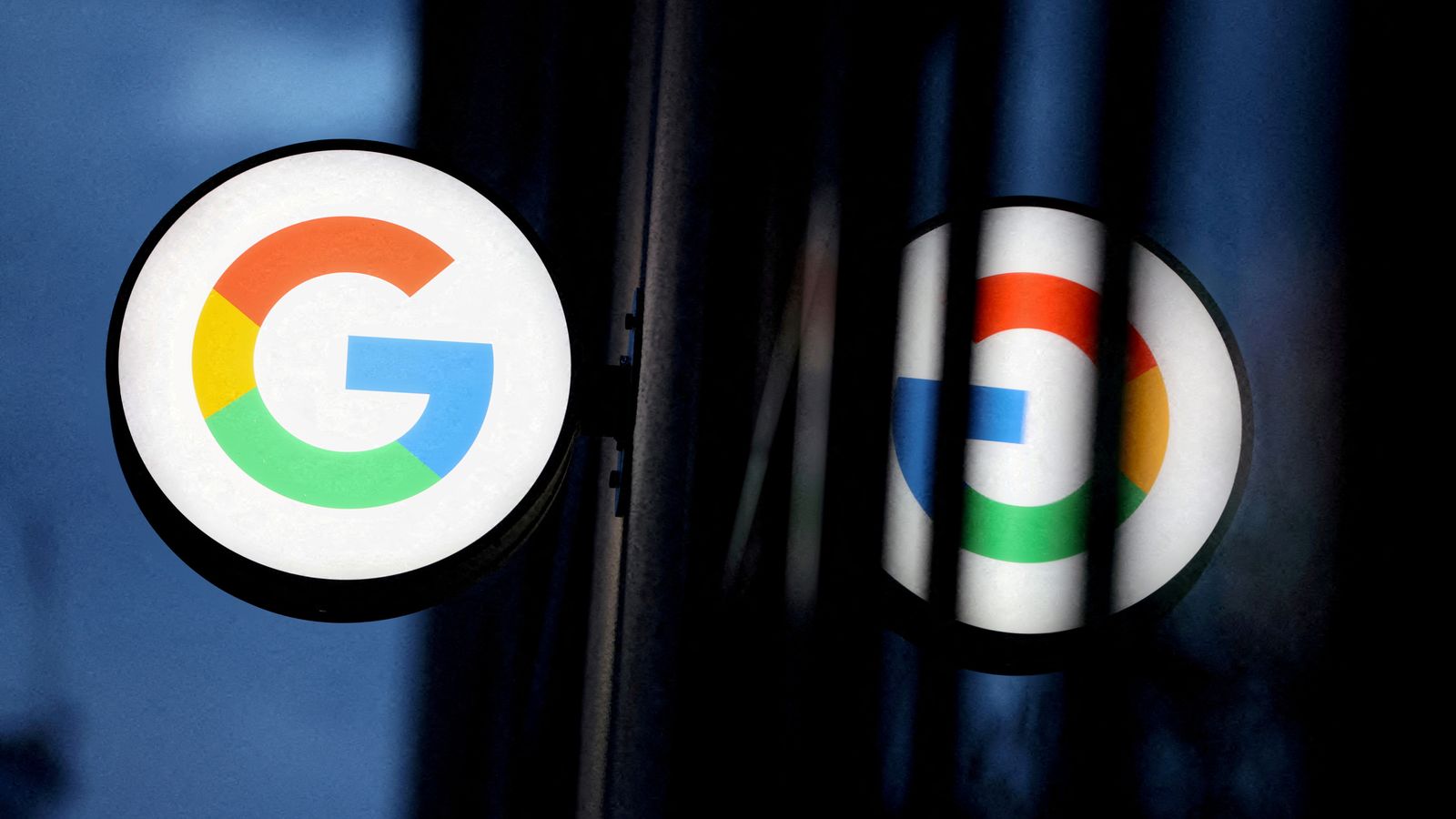UK Regulator Forces Google Search Changes: What the CMA Decision Means for the UK
Estimated reading time: 8 minutes
Key Takeaways
- The UK regulator forces Google search changes through proposed remedies.
- The CMA has proposed designating Google with “strategic market status” (SMS) in UK search and search advertising.
- This potential CMA decision on Google search UK could mandate significant operational changes for Google.
- Required remedies may include presenting user choice screens for alternative search engines, meaning Google forced to link rival search UK.
- Google may also face requirements for fairer search result ranking, increased transparency for publishers, and greater data portability.
- The impact of UK competition law on Google search aims to foster greater competition and user choice.
- The future of Google search in UK regulations involves ongoing CMA oversight and the potential for substantial fines for non-compliance.
Table of contents
- UK Regulator Forces Google Search Changes: What the CMA Decision Means for the UK
- Key Takeaways
- Introduction
- Background to the CMA’s Involvement
- The Core CMA Decision: Strategic Market Status
- Mandated Changes: How the UK Regulator Forces Google Search Changes
- Impact and Significance: The Effect of UK Competition Law on Google Search
- The Road Ahead: The Future of Google Search in UK Regulations
- Frequently Asked Questions
Introduction
In a significant move poised to reshape the digital landscape, the UK regulator forces Google search changes. The body spearheading this effort is the UK’s Competition and Markets Authority (CMA), the nation’s primary competition watchdog. This regulatory action represents a substantial step in addressing long-standing concerns about Google’s dominant position within the UK search market.

The nature of these proposed changes is multifaceted, aiming to enhance competition and provide users with greater choice. The CMA has identified several areas where Google’s control potentially stifles innovation and limits options for both consumers and businesses. Specifically, the CMA is taking steps to address Google’s dominance in the UK search market, citing concerns about competition and user choice, as detailed in recent announcements and reports from sources like the CMA’s own blog and TechCrunch.
The outcome of this regulatory process is expected to be a significant CMA decision on Google search UK, potentially leading to mandated modifications in how Google operates its search services for the millions of individuals and businesses across the country who rely on it daily. These proposals could fundamentally alter how Google operates search services for millions of users and businesses in the UK, impacting everything from how results are ranked to the options presented to users, a point echoed by both the CMA and TechCrunch. This regulatory intervention is not merely a bureaucratic exercise; it has the potential to introduce meaningful changes that could benefit consumers and foster a more dynamic digital market in the UK. The journey towards these changes is rooted in a detailed investigation into the structure and operation of the search market, highlighting the need for a more balanced ecosystem.
Background to the CMA’s Involvement
Understanding the current situation requires looking at the role and motivations of the CMA. The CMA is the UK’s primary competition watchdog, tasked with ensuring fair competition across digital markets and protecting consumers from practices that could limit choice or inflate prices. Its involvement in digital markets has intensified in recent years, mirroring a global trend of regulators grappling with the power of dominant tech platforms. As noted by the CMA, their mandate covers a wide range of activities, including investigating potential anti-competitive practices.

The context for the CMA’s investigation into Google is Google’s overwhelming dominance in the UK search market. Google controls over 90% of general search queries in the UK, making it an indispensable gateway to information and online services for virtually everyone online. Furthermore, Google serves as a vital platform for over 200,000 businesses that rely heavily on its search advertising services to reach customers, as highlighted in the CMA’s analysis. Recognizing this critical role, the CMA identified the search market as “critical” for both consumers and the broader tech sector, necessitating closer scrutiny to ensure it functions competitively.
A key development empowering the CMA’s current actions is the introduction of the UK’s new Digital Markets Competition Regime. This regime, which came into effect in January 2025, provided the CMA with expanded powers to intervene proactively in digital markets where specific companies hold significant influence. These powers allow the CMA to impose remedies deemed necessary to promote competition and address identified issues. This legal framework is a departure from previous, potentially less flexible, regulations and is designed to keep pace with the rapidly evolving digital economy, a move discussed in the context of broader critical tech challenges in 2025 and Google’s potential oversight from the UK watchdog.

The CMA’s investigation was triggered by several specific concerns regarding Google’s operation in the search market:
-
_Data Advantage:_ Google’s unique and extensive access to historical searches and its vast web indexing capabilities create a significant barrier for potential competitors, making it exceedingly difficult for them to build viable alternative search engines with comparable data resources. This data moat was a central theme in the CMA’s concerns.

-
_Advertising Costs:_ The lack of effective competition in the search market contributes to elevated search advertising costs for businesses. With limited alternatives, advertisers are heavily reliant on Google, which can impact their profitability and the cost of goods and services for consumers. This issue was explicitly addressed in the CMA’s investigation into Google’s search and search advertising services.
-
_Transparency and Ranking:_ There are concerns about the lack of transparency in how Google ranks and displays search results. Allegations often arise that Google might favor its own services or those of its partners, potentially disadvantaging competitors and limiting the visibility of diverse content providers, as hinted at in discussions about AI search technology’s future and documented by PYMNTS, the CMA, and TechCrunch.
These factors collectively prompted the CMA to initiate a formal investigation under its new powers, setting the stage for the potential remedies now being proposed. The investigation aimed to gather detailed evidence on these concerns and determine whether regulatory intervention was necessary and proportionate.
The Core CMA Decision: Strategic Market Status
The central announcement from the CMA came on June 24, 2025. On this date, the CMA announced its proposal to designate Google as having “strategic market status” (SMS) in search and search advertising within the UK, as detailed on both the CMA’s blog and their case page. This designation is a key feature of the new Digital Markets Competition Regime and is reserved for companies deemed to have exceptional power and entrenched influence within a specific digital market. It’s a formal recognition by the regulator of a company’s significant market position.

It is crucial to understand that the SMS designation itself does not automatically mean that Google has been found guilty of anti-competitive behavior. Instead, it acknowledges Google’s dominant position and triggers a new level of oversight and regulatory engagement. As highlighted by PYMNTS, this status lays the essential groundwork for the CMA to propose and potentially impose specific, binding remedies designed to address the identified competition issues. It shifts the relationship between the regulator and the platform, allowing for proactive intervention rather than solely reactive enforcement against proven breaches.
The CMA’s overall findings leading to this proposed SMS status reinforced the concerns that initiated the investigation. The findings highlighted the risk of entrenched dominance by Google, potentially limiting innovation and growth for smaller competitors in the market. Furthermore, the CMA found evidence of limited user choice, suggesting that users may not easily discover or switch to alternative search providers even if they exist. The findings also pointed to potential barriers to innovation from smaller competitors who struggle to gain traction against Google’s established network effects and data advantages. This summary of findings is consistent across CMA’s blog and the PYMNTS reporting. This proposed CMA decision on Google search UK is therefore a direct consequence of these market findings and the powers granted by the new regime. It’s a formal declaration that, in the CMA’s view, Google’s market position requires specific regulatory attention to ensure a healthy competitive environment.
Mandated Changes: How the UK Regulator Forces Google Search Changes
The designation of Strategic Market Status is the trigger for potential mandatory remedies. If the SMS designation is finalized as expected (with the final decision anticipated in October 2025, as outlined on the CMA’s case page and the CMA blog, and reported by TechCrunch), the CMA will move to require Google to implement several specific changes. These changes are designed to directly counteract the competition concerns identified during the investigation. This is the core mechanism through which the UK regulator forces Google search changes.
Here are some of the key changes Google may be required to implement:
-
_User Choice Screens:_ Perhaps one of the most tangible impacts for average users, Google may be compelled to present UK users with alternative search engine options. This could involve displaying a “choice screen” when a user sets up a device or browser, or periodically, allowing them to easily select or switch their default search provider. This directly addresses how Google forced to link rival search UK will manifest in practice. This mechanism aims to break the inertia that keeps users with the default Google search and give competing engines a fairer chance to gain users. According to TechCrunch, this measure could even extend to offering choices for AI-driven assistants, which are increasingly integrated into search functionalities.
-
_Fairer Search Results:_ Google would likely have to adhere to new, stricter rules ensuring greater transparency and fairness in how search results are ranked and presented. The goal is to reduce the risk of Google favoring its own specialized search services (like flights, shopping, maps) at the expense of competitors, which critics argue can create “gateways” that keep users within Google’s ecosystem. This measure, also highlighted by TechCrunch, aims to level the playing field for providers of specialized information and services that appear in search results.
-
_Publisher Control and Data Portability:_ Publishers whose content appears in search results may gain more control over how their articles, images, and data are used, particularly in snippets or AI-generated answers. Furthermore, Google could be required to make certain aggregate consumer search data portable or accessible to support rival innovation and enable competitors to improve their own services, as discussed by PYMNTS and TechCrunch. This aims to address the data advantage that makes it difficult for new entrants to compete effectively.
-
_Enhanced Market Transparency:_ The measures also aim to improve transparency in the search advertising market. This includes making advertising costs clearer for businesses and ensuring fair access for businesses reliant on search advertising to reach potential customers. Increased transparency can help businesses make informed decisions about their advertising spend and potentially lead to fairer pricing due to increased competition, a point emphasized by PYMNTS.
These proposed remedies are not exhaustive but represent the core interventions the CMA believes are necessary to foster a more competitive environment in the UK search market. They target specific areas where Google’s dominance is seen as potentially harmful to competition and consumer choice. The implementation details will be crucial and are expected to be a point of discussion between Google and the CMA. This is how the UK regulator forces Google search changes, using its new powers under the Digital Markets Competition Regime. The goal is not to dismantle Google but to ensure its operations in the UK market are conducted in a manner that allows other players to compete effectively. The requirement for Google forced to link rival search UK highlights the direct intervention aimed at altering user behaviour and exposure to alternatives.

Impact and Significance: The Effect of UK Competition Law on Google Search
The proposed interventions by the CMA represent the most sweeping attempt yet by UK authorities to regulate a major tech platform’s core search services. This action goes beyond previous regulatory engagements and directly targets the mechanisms Google uses to maintain its market share and generate revenue from search. It signifies a fundamental shift in the UK’s approach to digital markets, moving towards more proactive intervention in areas deemed critical infrastructure, a point highlighted by both the CMA and PYMNTS.
The expected impact of UK competition law on Google search is potentially transformative:
-
_Greater Competition:_ The remedies, particularly the user choice screens and measures to make search results fairer, could make it easier for competing search engines to gain visibility and attract users. This increased competition could stimulate innovation among search providers, potentially leading to new features, better privacy protections, or different search experiences. For businesses, greater competition could also translate into potentially lower advertising costs if alternative platforms offer more competitive pricing, an outcome discussed by PYMNTS.

-
_More User Choice:_ UK users may directly benefit from more transparent access to different search options. The goal is to empower users to make informed decisions about their search provider rather than passively using the default. This could lead to users discovering search engines better suited to their needs or preferences, ultimately reducing reliance on a single provider and fostering a healthier digital ecosystem, a point echoed by TechCrunch.
-
_Broader Regulatory Trend:_ The CMA’s move aligns with a growing global trend of regulators scrutinizing the power of large tech companies, particularly in digital markets where network effects and data advantages can create seemingly insurmountable barriers to entry. Similar actions or proposals are being pursued in the European Union under the Digital Markets Act, the United States, and other major jurisdictions. This case sets a precedent for how UK authorities will use their new powers and signals their willingness to take robust action where they believe competition is being harmed, a trend visible in discussions about significant AI regulation impacts, new AI regulations guides, and even the WhatsApp UK government data access legal battle. The CMA’s action demonstrates the proactive stance UK law is taking in shaping digital markets, as detailed by the CMA, PYMNTS, and TechCrunch.

The significance of this case extends beyond Google Search itself. It tests the capabilities and resolve of the CMA under the new Digital Markets Competition Regime. Successful implementation of these remedies could pave the way for similar interventions in other digital markets dominated by a few large players, further shaping the future of the digital economy in the UK. The impact of UK competition law on Google search serves as a template for future regulatory actions against other tech giants.
The Road Ahead: The Future of Google Search in UK Regulations
While the CMA has announced its proposal for SMS designation and outlined potential remedies, the process is not yet fully complete. The CMA’s consultation on the SMS designation remains open until July 22, 2025, allowing interested parties, including Google, competitors, businesses, and consumers, to submit their views and evidence, as stated on the CMA’s case page. A final decision on whether to formally designate Google with SMS status is expected in October 2025. This period allows for a formal challenge process and ensures all perspectives are considered before the final determination is made.
Should Google receive the SMS status designation in October, the CMA will then proceed to finalize the precise details of the interventions Google will be required to implement. This will involve translating the high-level proposed remedies into specific, measurable actions. Following this, the CMA will establish a monitoring framework to ensure Google complies with the mandated changes. The new Digital Markets Competition Regime gives the CMA significant enforcement powers. Crucially, the regime allows the CMA to levy substantial fines for non-compliance – penalties can reach up to 10% of a company’s global annual revenues, a figure that represents a potentially massive financial consequence for a company the size of Google, as reported by PYMNTS. This high penalty threshold is intended to act as a powerful deterrent and ensure compliance.

Ongoing oversight is expected to be a feature of the future of Google search in UK regulations under the new regime. The CMA will likely continue to monitor the effectiveness of the implemented remedies and the state of competition in the search market. Further regulatory actions could follow in the future if the initial remedies prove insufficient to address the competition concerns or if new issues arise, reflecting a dynamic approach to regulating digital markets. This adaptability is crucial given the rapid pace of technological change, including developments in AI, which can introduce new market dynamics, as potentially seen in cases like Apple being sued over Siri AI delays.
Google, for its part, has acknowledged the CMA’s proposals and has voiced concerns. Reports indicate that Google has expressed reservations about the breadth and potential business impact of the proposed changes, suggesting there will likely be ongoing discussions and potential debate over the specific details and implementation timeline of the remedies. As PYMNTS notes, Google’s response will be a key part of the process moving forward. This regulatory process highlights the complex balance between fostering competition, protecting consumers, and allowing businesses to innovate and operate efficiently. The future of Google search in UK regulations is clearly headed towards a period of closer scrutiny and mandated changes aimed at creating a more open and competitive environment.
Frequently Asked Questions
What is the CMA?
The CMA, or Competition and Markets Authority, is the United Kingdom’s government body responsible for strengthening business competition and preventing anti-competitive activities. Think of them as the UK’s primary competition watchdog, ensuring markets work well for consumers and businesses. They operate under specific legal frameworks, including the new Digital Markets Competition Regime, which gives them powers to intervene in powerful digital markets.
Why is the CMA investigating Google Search?
The CMA is investigating Google Search primarily because Google holds a dominant position in the UK search market, controlling over 90% of queries. Concerns include Google’s data advantage, the potential for elevated advertising costs due to limited competition, and a lack of transparency in how search results are ranked, which might disadvantage rival services and content providers. They view the search market as “critical” and needing intervention to ensure fairness and innovation.
What does “Strategic Market Status” (SMS) mean for Google?
SMS is a designation under the UK’s new Digital Markets Competition Regime for companies with significant and entrenched power in digital markets. Receiving SMS status doesn’t automatically mean proven wrongdoing but it triggers enhanced regulatory oversight. Crucially, it lays the groundwork for the CMA to propose and mandate specific remedies or changes to how Google operates in the UK market to promote competition.
What specific changes might Google have to make in the UK?
Mandated changes could include:
-
Presenting user choice screens for selecting alternative search engines.
-
Implementing rules for fairer and more transparent search result ranking.
-
Granting publishers more control over content usage and making consumer search data portable to competitors.
-
Increasing transparency in search advertising.
These measures are designed to ensure Google forced to link rival search UK becomes a reality, among other steps to open the market.
When will the final decision be made on Google’s SMS status?
The CMA’s consultation period on the proposed SMS designation ends on July 22, 2025. Following this, the CMA is expected to issue its final decision on whether to designate Google with SMS status in October 2025.
What happens if Google doesn’t comply with mandated changes?
The new Digital Markets Competition Regime gives the CMA significant enforcement powers. If Google is designated with SMS and fails to comply with the mandated remedies, the CMA can impose substantial fines. These penalties can be as high as 10% of Google’s global annual revenues, a figure that could amount to billions of pounds.
How might these changes affect UK users?
UK users could benefit from increased choice and potentially better services if competing search engines gain traction. User choice screens could make it easier to discover and switch to alternative providers. Fairer ranking rules might lead to more diverse and relevant results, less influenced by Google’s own commercial interests. Overall, the impact of UK competition law on Google search aims to put users in a stronger position.
How might these changes affect businesses using Google Search?
Businesses relying on search advertising might benefit from increased competition potentially leading to lower advertising costs or more competitive options. Publishers may gain more control over their content’s use in search. Measures promoting transparency in the search market could also help businesses make more informed decisions about their online presence and marketing strategies.







